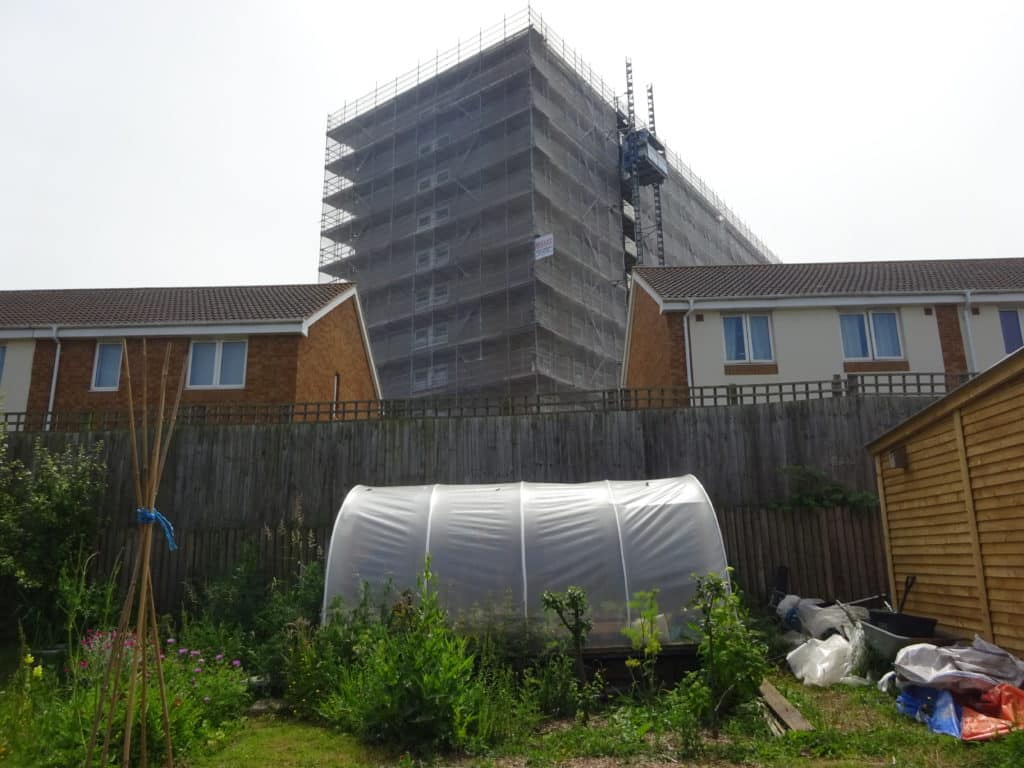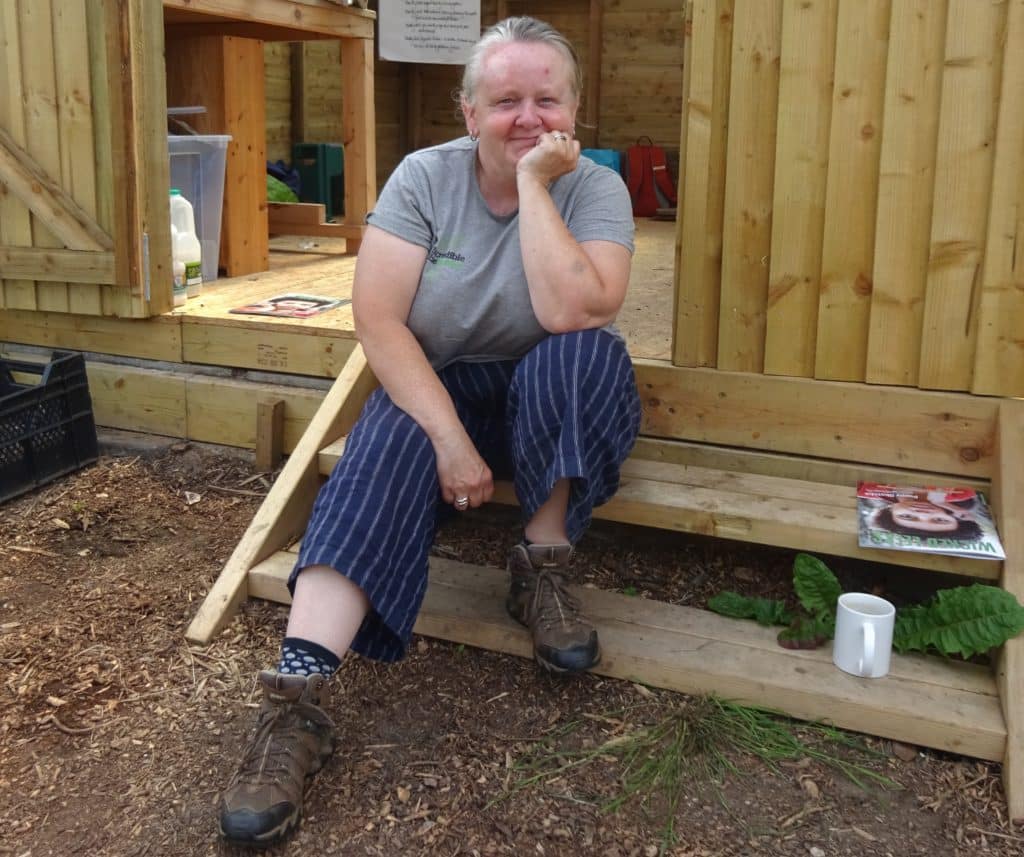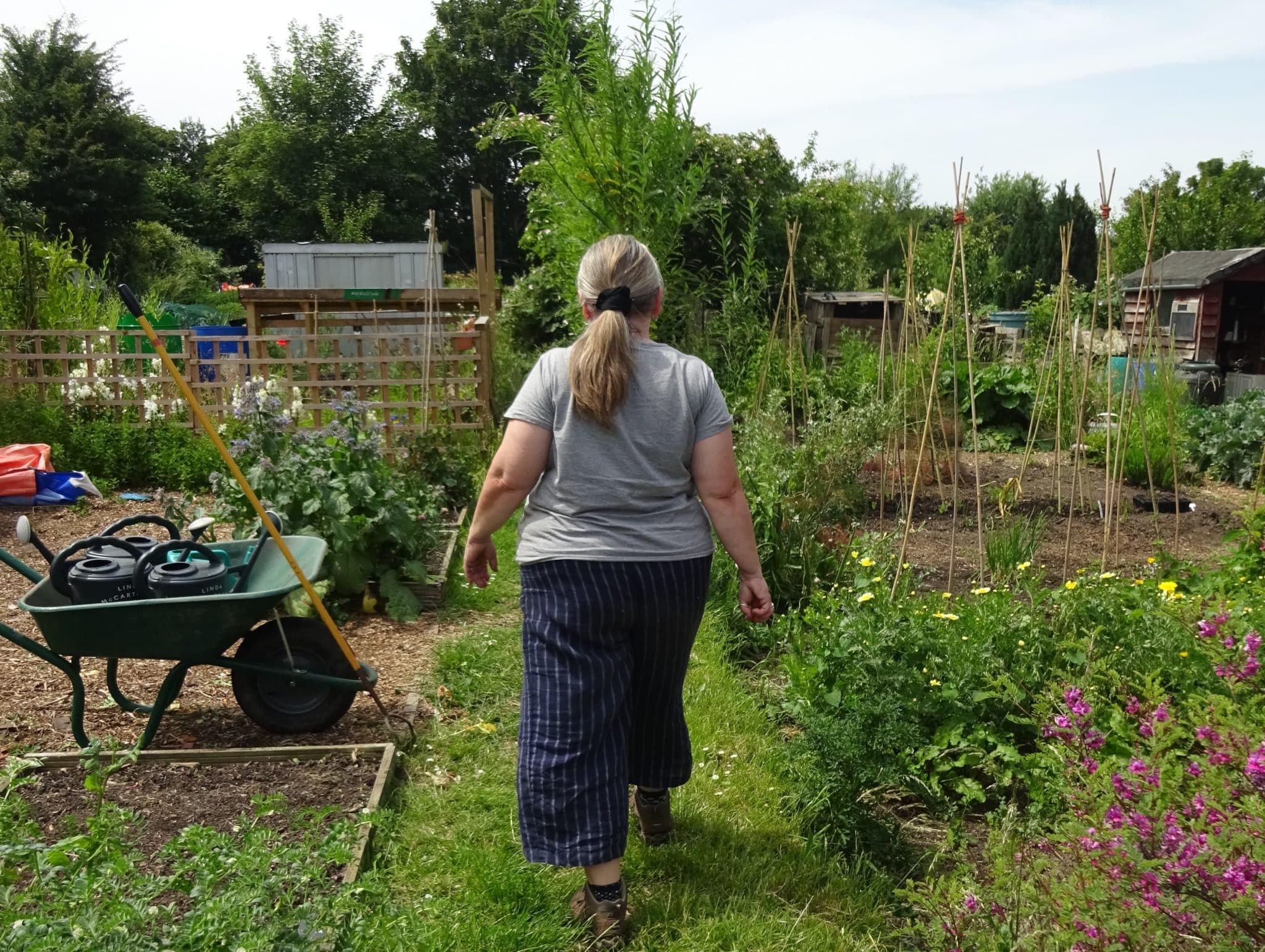Banksy might be Bristol’s most well-known renegade, but he’s certainly not the city’s only resident working in public spaces without official permission.
“What we’ve learnt over the years is that no-one notices. Put a high vis vest on and no one questions you.” Sitting on a sunny step at her garden shed at an allotment plot in an understated part of north east Bristol, Sara Venn couldn’t look less like a rule breaker.
But the network of guerrilla gardeners she runs, the Bristol outpost of national group Incredible Edible, has a well-established direct action approach to creating gardens.
“I’ve gardened in the middle of the A38 for two years and no one noticed. You just get on with it,” says Venn, a trained horticulturalist who moved to Bristol in 2013.
She began by working in traditional community gardens, often reliant on long-winded grant funding or help from the council, before choosing a different path that was more shovels than strategies.
Nowadays, her work usually begins by a member of the public “sidling up” at an event, says Venn, who then visits the space and hears from locals what it is they want to do. Often, her work is “hand holding”, as people new to gardening learn how to care for crops. But her team also provide expert growing skills, like no-dig, composting, and choosing the right crops.
What we’ve learnt over the years is that no-one notices. Put a high vis vest on and no one questions you.
“When we first began, you had to get permission and then pay £2,000 to the council so if anything went wrong they would be covered,” says Venn, who says they simply stopped paying the fee and carried on making the gardens.
And even if people do notice, they aren’t that inclined to care if “you’re making something rubbish a bit better and supporting people to do sensible growing”, she says.
“Globe artichokes grow everywhere, blackcurrants get on with it, [as do] fennel, mint, lemon balm, and perennial kales. If you see any of those things, you know I’ve been there. They’re bombproof,” says Venn.
Gardens created by Incredible Edible are now transforming “unloved bits of land” across the city, from residential areas in Speedwell, to Avonmouth train station and Millenium Square in the city centre.
“We ramped up food production at the start of Covid, where previously we were experimenting with things like lentils. We made sure it was things that people recognised. And if there was a glut we put it into one of the schemes across the city,” she explains.

Communities are always involved in the project from the beginning, which almost completely cuts out the risk of vandalism, according to Venn, and ensures plots are well maintained. Second: all food grown in public spaces must be available to everyone. “If no one helps themselves then what we’re doing is pointless,” says Venn.
There are many reasons why urban food growing is a radical concept, not least issues around access to land, plus the racial and socioeconomic inequality in who has access to that land, and the mental and physical health benefits that come alongside.
“It’s about empowering people to take control of their own environments. Instead of asking the council to clear it, it’s clearing it and then asking the council to pick up the black bags,” explains Venn, who’s also found that gardening can be a simple antidote to climate anxiety. “We speak to so many people who are terrified of climate change and are too busy keeping a roof over their head,” she says. “We say: just start composting, put some beans in the soil. It makes you feel part of a bigger conversation.”
It’s possible there’s more access to land in cities than in the country. You’re not going to get more than an acre, but it’s probably easier to access.
She is also clear about filling a more practical gap. “People growing stuff has to be better than someone sitting on a mower 10 hours a day, or pesticide spraying. We don’t need another strategy on biodiversity sitting in a drawer.”
The first Incredible Edible was set up in the Yorkshire town of Todmorden, but its decentralised model means every branch runs autonomously. What they probably all have in common is connecting people in cities and towns with where food comes from and the effort it takes to produce. “What we do have in cities are communities who are so far away from where food is produced, because food comes from Tesco,” says Venn.

Ironically, land for food growing may also be easier to access in cities than in the country. “Everyone assumes that the council owns all the land but actually they own a small percentage,” says Venn. “For a couple of our gardens on little pockets of land, we still have no idea who owns it.
“It’s possible there’s more access to land in cities than in the country. You’re not going to get more than an acre, but it’s probably easier to access,” she continues. “Even if it’s three fruit trees and a bench, that is just life-changing for the people who live around it.”
Back in the garden, Venn has a clear idea of her place in the wider food system. “I think community gardening is a start to put people where they become part of the puzzle. Showing people what can be done, empowering them and giving them the skills.”
This interview was originally published in the Autumn 2022 print edition of Wicked Leeks. You can read the full issue online now.









0 Comments